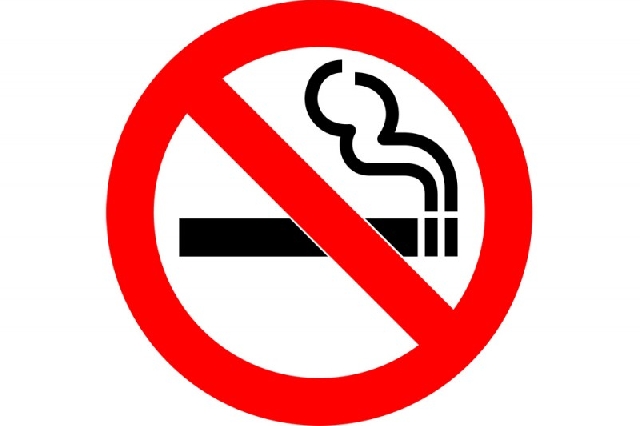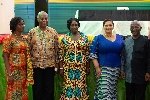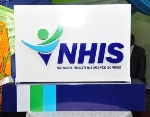There’s no safe tobacco use – FDA
 A no-smoking sign
A no-smoking sign
Participants at the just-ended high-level meeting on tobacco control in Ghana have expressed concern about the need for more rigorous structures for the regulation and control of tobacco and tobacco products within the country.
The meeting brought together about 40 participants from the judiciary, security, health services, civil society organisations, and local government, among others.
The broad objectives of the meeting included the incorporation of strict adherence to the provisions for Designated Smoking Areas and Non-Smoking Areas as part of the prerequisites for public facilities.
Others include public sensitisation on the criminal implications of non-adherence to the national tobacco control provisions and expansion of access to tobacco cessation services countrywide.
Tobacco control is a global challenge that requires a sustained concerted effort to address. According to the World Health Organisation (WHO), more than 80% of the 1.3 billion tobacco users live in low and middle-income countries (LMICs), where the burden of tobacco-related illness and deaths are high.
The Tobacco Atlas Ghana also estimates that over 807,600 people smoke cigarettes and other tobacco products in Ghana. Out of this number, 75 men die every week from diseases linked to smoking and using tobacco and tobacco products. Even more alarming is the fact that 0.4% of boys, and 1.7% of girls in Ghana smoke shisha (Ghana Youth Tobacco Survey, 2017), a rising trend in the youth.
Addressing participants, the Chief Executive of FDA represented by Mrs Akua Owusua Amartey (DCEO-Technical Operations) indicated that tobacco continues to be a threat to public health and an impediment to the actualisation of the Sustainable Development Goals.
She noted that although Ghana has made significant strides in the implementation of the World Health Organisation’s Framework for Tobacco Control, there is an urgent need for stronger collaboration of all stakeholders such as the law enforcement agencies, local government, revenue authorities, creative industry etc. in the enforcement of the recently ratified Protocol to Eliminate Illicit Trade in Tobacco Products in addition to the many other conventions the country has committed to.
A representative from the WHO, Dr Joana Ansong in her remarks emphasised the need for a multi-sectoral approach to the implementation of Ghana’s tobacco control provisions in Part 6 of the Public Health Act, 2012 and the Tobacco Control Regulations of 2016, Legislative Instrument 2247.
Dr Ansong mentioned that adopting a multi-sectorial approach would help avoid duplication of efforts and other inefficiencies and rather maximize limited technical and financial resources to shore up the regulation and control of tobacco.
She reminded participants that a clear delineation of roles and responsibilities of all stakeholders, coupled with strong platforms for information sharing are perquisites for the successful implementation of a multisectoral approach.
She, therefore, urged participants to join efforts and reaffirm their commitment in this fight to preserve public health and safety.
Participants committed to prioritising actions to better regulate and control tobacco. For example, the Customs Division of the Ghana Revenue Authority indicated that with the deployment of its Integrated Customs Management Information Systems, the Revenue Authority is able to identify the content of incoming consignments and would ensure timely sharing of the information with FDA and security agencies to effect the necessary actions.
In addition, the police and other law enforcement agencies are committed to investigating all issues of infusions of tobacco products with other substances of abuse and prosecute such cases to serve as a deterrent.
On the issue of tobacco cessation, the participants stressed the need to strengthen Ghana’s cessation policies and establish more cessation centres outside mental health facilities to encourage people who want to quit the addiction to do so with ease.
Finally, an appeal was made to advocate for more stand-alone services to tobacco cessation and the need to incorporate these in the existing Ghana Health Service wellness centres and the Ghana Education Service’s guidance and counselling facilities.
The Psychological Association of Ghana also expressed their readiness to support the course and help candidates in their cessation drive. Training of other critical health service delivery personnel like those in the traditional herbal treatment centres was also identified for capacity building to assist in tobacco cessation programmes.
Source: Classfmonline.com
Trending News

ACEYE's 2025 IGIPTEP outlines top performing gov't institutions, Interior Ministry leads
03:15
Veep launches book on Ephraim Amu’s legacy
15:34
Man remanded into custody over assaulting woman with baby in viral video
02:03
Early learning Breakthrough: New study reveals a scalable path to delivering quality early learning to every child
02:06
Parliament approves GH¢4.44 billion for local Gov't Ministry
15:17
NHIA informs NHIS-credentialed healthcare providers of reviews following uncapping of NHIF
01:29
Heritage Bank collapse: Seidu Agongo opens up about strained relationship with Former Finance Minister Ken Ofori-Atta
16:20
Sophia Akuffo, Prof. Oquaye submit constitutional reform proposals to CRC
13:12
A&C on damages from Tuesday’s downpour: ‘No injuries were recorded’
01:01
Ken Attafuah vindicated in dismissal of Madina NIA worker
04:19



